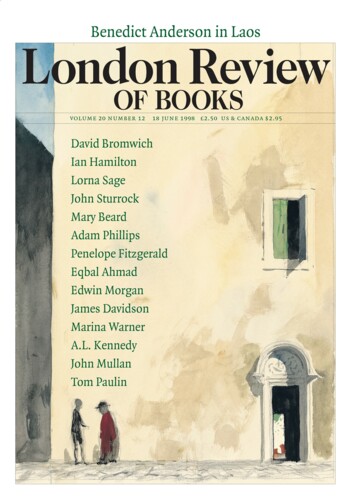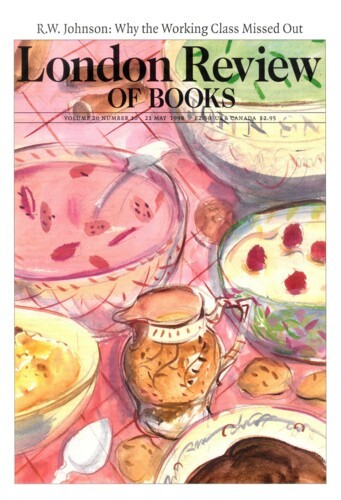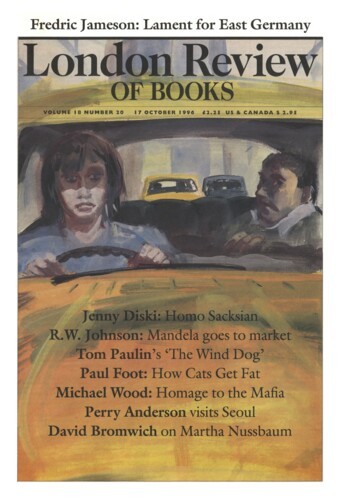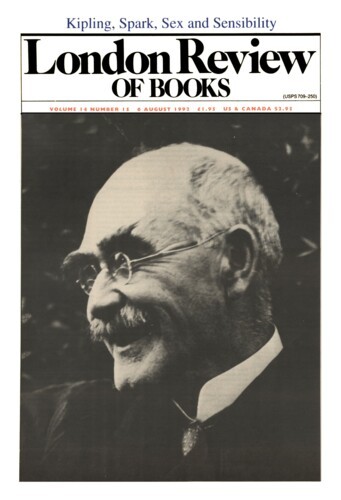Shoe-Contemplative: Hazlitt
David Bromwich, 18 June 1998
How they keep trying to bury Hazlitt, and how he keeps coming back. T.S. Eliot said he was guilty of ‘crimes against taste’. David Lodge made him a twee subject of nostalgic research for the English hero of Small World, Philip Swallow, hopelessly outgunned by the vulgar but irresistible American, Morris Zapp. Lodge had got his significant detail wrong – Swallow should be a scholar of Charles Lamb (the ‘gentle-hearted’) – but the broad allusion did pretty much what was wanted, assuring the theoretically advanced that they were now top dogs. Condescension usually has an anxious motive. Eliot, as Tom Paulin is on hand to say, was working from a subtext of his own: Hazlitt’s crimes against taste would have included his unapologetic admiration for Milton, and behind that offence lay a consistent choice of affinities. Eliot was a Dissenter who grew to hate his Dissenting inheritance. Hazlitt belonged to the party of rebellion and never looked back. He went from Unitarianism to political radicalism to the new poetry of his time without a break of stride and without any sense of shifting allegiance. He claimed not to have changed his mind, in principle, after the age of 18. He added – confessing to something keener than stubbornness – that he could not trust anyone who departed much from the ideals he genuinely cherished at 18.’‘





